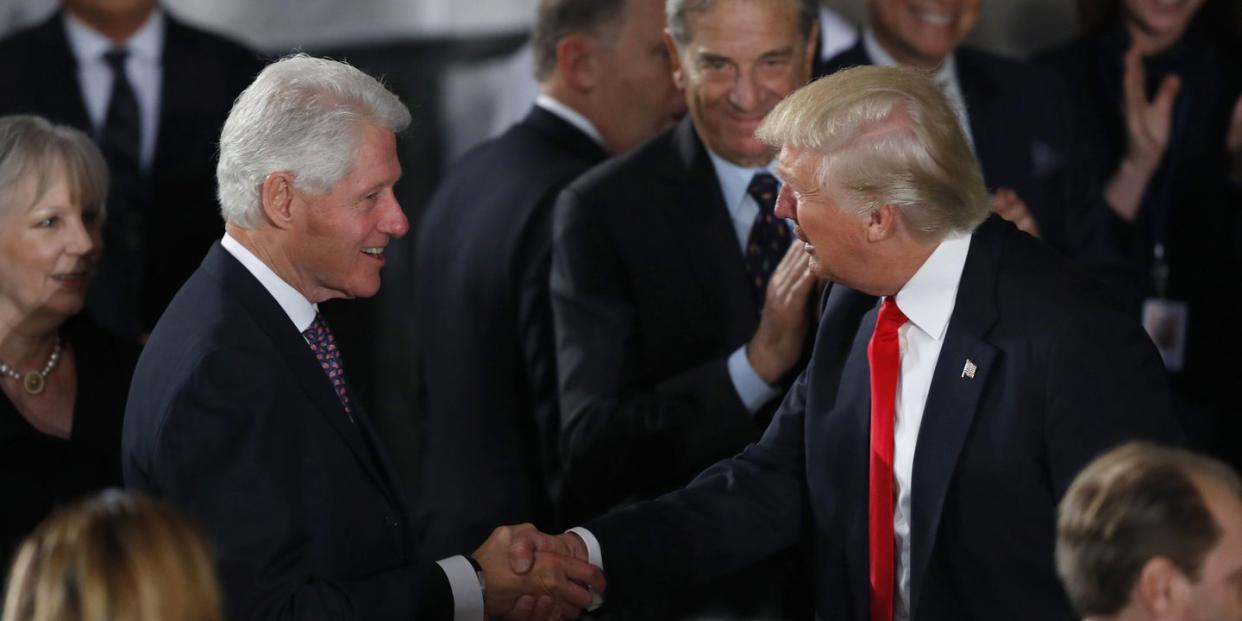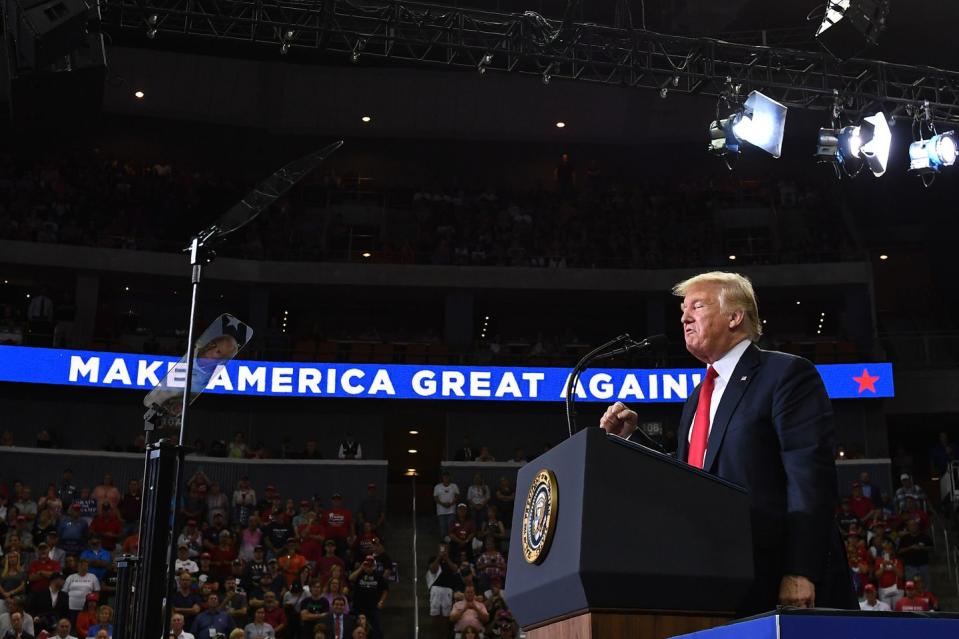Who Was the First Politician to Use "Make America Great Again" Anyway?

Donald Trump used the rallying cry "Make America Great Again" to propel him to victory in the 2016 presidential election, and it was such a success that he has already trademarked a follow-up phrase, "Keep America Great!," for the 2020 election cycle.
The story of its history is fascinating-and more ambiguous than our president would have us believe.
"The line of ‘Make America Great Again,’ the phrase, that was mine, I came up with it about a year ago, and I kept using it, and everybody’s now using it, they are all loving it,” Trump reportedly said in March of 2015. "I don't know, I guess I should copyright it, maybe I have copyrighted it," he added.

In fact, Trump had applied for a trademark for the phrase in 2012. His application asked for exclusive rights to use it for "political action committee services, namely, promoting public awareness of political issues and fundraising in the field of politics," the Washington Post reported.
Trouble is, Trump was not the first politician to use in. Ronald Reagan and George H.W. Bush used "Let’s Make America Great Again" in their 1980 campaign and at the Republican National Convention that year, which Trump claimed he didn't know until 2016. "He didn’t trademark it," Trump said of Reagan. "I think I’m somebody that understands marketing," he said.
And while former President Bill Clinton criticized the phrase as racist-telling a crowd at a Florida rally in 2016, "I’m actually old enough to remember the good old days, and they weren’t all that good in many ways”-he has used it himself.
"I believe that together we can make America great again," Clinton said in his 1991 presidential announcement speech. The video below, a trailer for The Clinton Affair, an A&E special that premieres this Sunday, November 18 at 9 p.m., includes part of the speech starting at the 18-second mark.
As NBC previously reported, Clinton also used it at a campaign stop about a year later, when he asked voters "to make America great again economically, educationally, and socially."
Perhaps it's all a question of context.
('You Might Also Like',)